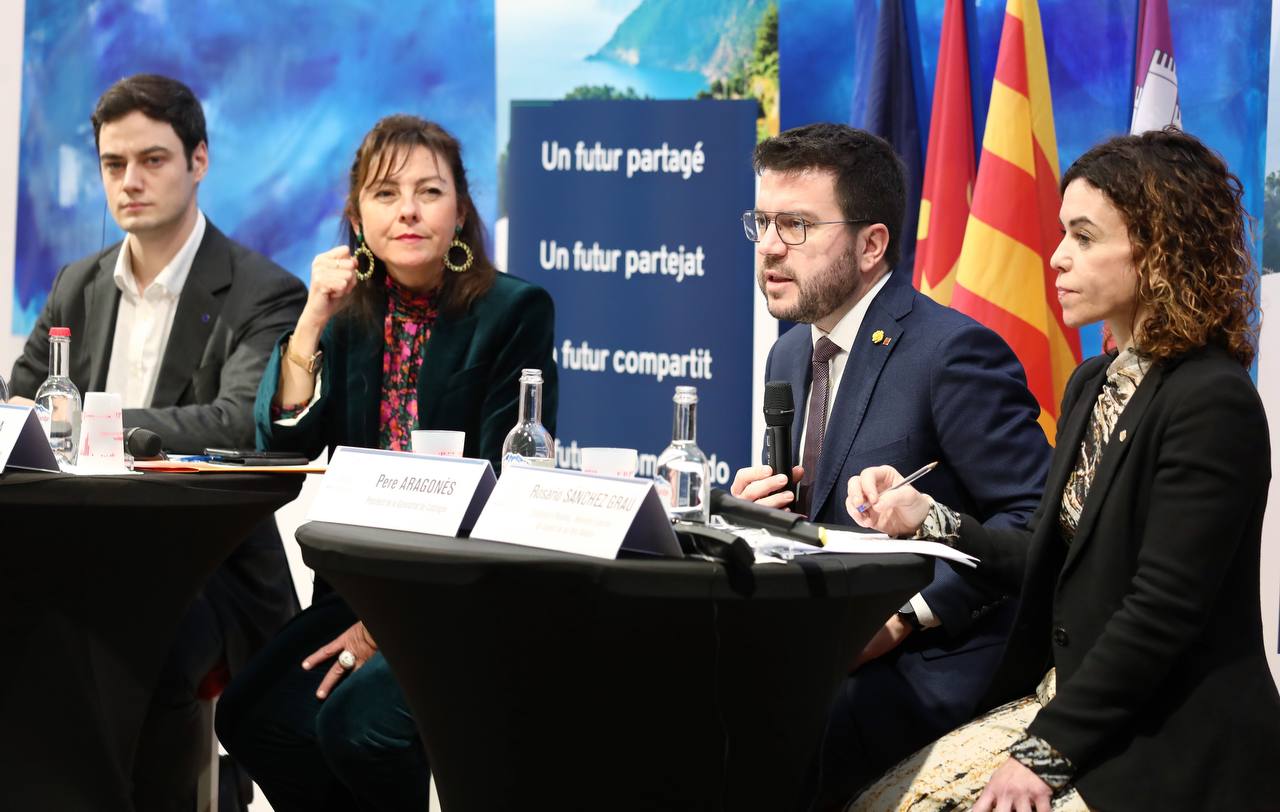The point of reference for Catalan president Pere Aragonès is his predecessor Pasqual Maragall and the objective, the construction of "broader alliances in Europe". This is what the current president of the Generalitat of Catalonia affirmed this Friday from the city of Toulouse, where he has assumed the rotating presidency of the Pyrenees-Mediterranean Euroregion, a European cooperation group formed by the governments of Catalonia and the Balearic Islands, in the Spanish state, and the French region of Occitania. The objective set for this mandate is to promote the construction of a Mediterranean macro-region, which will include other European territories as well as actors from outside the continent. Currently there are only four such macro-regions: Adriatic, Baltic, Danube and Alpine. Aragonès was accompanied by Caroline Delga, the Occitan president from whom he takes over the role, and the Balearic minister of finance and foreign affairs, Rosario Sánchez Grau, who represented the Balearic government of president Francina Armengol. The three territories signed a declaration.
In the press conference prior to the transfer of the presidency for the period 2023-24, Pere Aragonès explained that "the Euroregion was born with the impetus of several leaderships, among them that of Pasqual Maragall" and he added that from Maragall, Barcelona's Olympic era mayor and Catalan president from 2004-2007, he adopted "that strategic vision" - the "understanding that Catalonia's participation in Europe has to start from broader alliances". The current Catalan president sees this mandate as a chance to rebuild the links with European institutions that have undergone damage during the last years. He stressed how, in 2022, "after ten years", the Catalan leadership was able to hold meetings again with the president of the European Commission, Ursula von der Leyen, or receive several European commissioners. "This relationship is well founded", defended Aragonès, who made an appeal to "look to what's ahead" and to use "all the instruments at our disposal to strengthen ties with European institutions".

President Aragonès defended that the Euroregions are "the best allies of the European project" and help to "overcome borders" and "build solutions to global challenges". And he replied: "This is how the European project is strengthened. Without renouncing anything of who we are and valuing what we can contribute in terms of cultural and linguistic diversity".
Call to reopen the border crossings
Despite the Spanish-French summit held in January in Barcelona, one issue that is considered indispensable on both sides of the border has not been resolved: the reopening of all border crossings: there are eight secondary border crossings in the Pyrenees between Spanish and French territory which have been kept closed due to the wishes of the French executive since 2019, causing massive inconvenience to locals and even dividing cross border communities. For this reason, both Catalonia and Occitania have called to put into effect the reopening. "We are concerned and will continue to claim that these crossing points can be reopened. There are no reasons for them to remain closed", assured president Pere Aragonès, who offered Catalonia's Mossos d'Esquadra police to "guarantee all security conditions" - for example in issues of anti-terrorism controls. In the same line, the Occitan president Carole Delga claimed that there should be a "fluid circulation between our two territories and in the Pyrenees as a whole".
What is the Euroregion?
The Pyrenees-Mediterranean Euroregion, created in 2004, is a European territorial cooperation grouping consisting of Catalonia, the Balearic Islands and Occitania. It was created with the aim of forming a cooperation pole based on innovation, sustainable development and territorial integration, and with the intention of affecting and influencing European institutions. The last time the Generalitat of Catalonia chaired the organization was between June 2017 and February 2019. Among its priorities are the fight against climate change and the promotion of the Catalan and Occitan languages.

